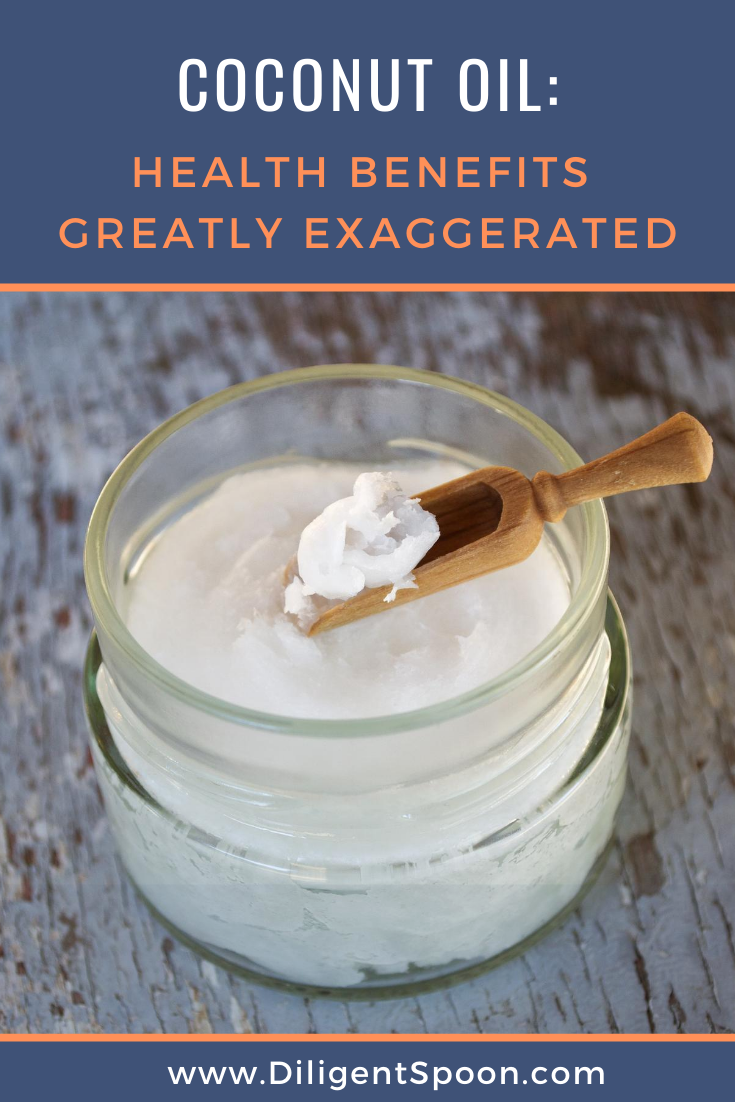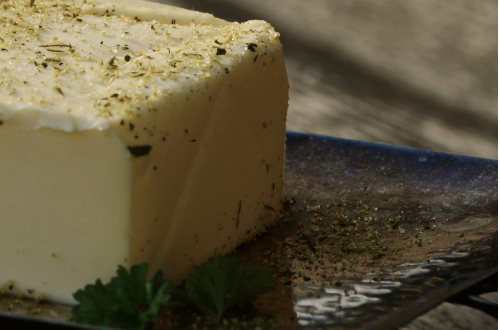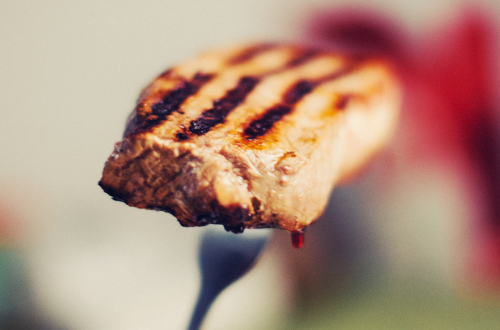
Coconut Oil’s Health Benefits Are Exaggerated
What is it with coconut oil? A few years ago, it was super expensive and only available in small jars at the local hippy grocery store. Now, you can get a 5-gallon bucket of it at Costco. And, as you know, any product that makes it into the industrial-sized Costco version has reached a fever-pitch of popularity.
Taste-wise, unless you’re making a coconut curry, coconut oil tastes … coconutty, which, in my opinion, is weird and off-putting in a lot of dishes. Yes, you can buy ultra-refined coconut oil that doesn’t taste like coconut, but then why not just use butter or lard or olive oil?
You’re probably somewhat aware of the advertised health benefits of coconut oil, which are key to it’s popularity. Coconut has been reported to:
- Help you lose weight!
- Make your brain healthy – eat it and you’ll get smarter!
- Cure diabetes!
- Rub it on your skin – it will heal any rash and eliminate wrinkles!
… And the list goes on. Doctors and celebrities eat it by the spoonful, smear it on their bodies, maybe (force-feed) it to their pets. Is there anything coconut oil cannot heal?
Actually, coconut oil is really not that magical. As the name suggests, coconut oil is simply the fat that is extracted from the meat of the coconut. Sure, it’s a fat with some unique properties, but every fat has unique properties. Grass-fed beef lard is pretty high in omega-3s, but I’ve yet to see someone suggesting we start adding spoonfuls to our cereal.
Is coconut oil really that healthy?
Too Much Coconut Oil is NOT Good For You
I’ve seen people just heap spoonfuls of coconut oil into vegetables, thinking it will add some healthy fat. Yes, some fat is healthy and delicious. However, too much fat of any kind can eventually lead to unintentional weight gain, not to mention making your food too greasy – or slippery like Clark’s sled:
Even with the hilarity of slippery food products, there are many reasons – proven by experts – that coconut oil is not all it’s cracked up to be (you know, cracked up like a coconut?). Here are three big ones:
1. Coconut Oil is High In Saturated Fat
Saturated fat, in your kitchen-world, is any fat that is a solid at room temperature. The more saturated the fat, the longer it will remain solid as the temperature rises.
In molecular terms, in case you’re interested, “saturated” means that each carbon atom in the fatty acid chain is “saturated” with single bonds between other carbons and hydrogens.

(b) A mono-unsaturated fatty acid – because there’s one double bond (in red)
Source: https://nutrition.ucdavis.edu/outreach/nutr-health-info-sheets/pro-fat
Eating too much saturated fat, in any form or from any food, will raise LDL cholesterol. Higher LDL is a proven risk factor for heart disease and “vascular” events (stroke, heart attack). The surprising popularity of coconut oil as a health food is explained below:
“This represents a remarkable success in marketing by the coconut oil and related industries calling coconut oil a natural, healthful product, despite its known action to increase LDL cholesterol, an established cause of atherosclerosis and cardiovascular events,”
Frank M. Sacks, MD, of the Harvard T.H. Chan School of Public Health
Thank you, Dr. Sacks!
2. What About Medium-Chain Triglycerides (MCTs)?
MCTs are made up of medium-chain fatty acids – just like the fatty acids in the picture above but with fewer (6 – 12) carbons. MCTs do behave differently in the body, compared to the more common long-chain fatty acids (LCTs). Specifically, MCTs are more easily absorbed. They do not have to go through as many digestive steps as LCTs. This means that MCTs are more likely to be used as energy and less likely to be stored as fat. Also, because of MCTs’ shortcut metabolism, the argument is that they do not raise cholesterol levels as much as other saturated fats.
Note: Although sometimes MCT oil and coconut oil is used interchangeably, that’s not true. Coconut oil is made up of both MCTs and LCTs (about 25% LCTs). Anything labeled MCT oil is likely manufactured from the saturated fat of palm or coconut oil to be 100% MCTs.
So, does coconut oil and its MCTs help people lose weight and lower cholesterol? In a word, NO.
Diet trials comparing coconut to other fats have had mixed results, and usually only last a couple of weeks, which is not long enough to show lasting results. When looking at all the studies together, the overall trend seen in patients is that coconut oil, when compared with other nontropical vegetable oils:
- Increases total and LDL cholesterol.
- Did not change blood glucose or inflammation markers.
- Did not impact appetite, food intake, body fat, or body weight.
Who are MCTs for then? MCT oil can be beneficial for people who can’t absorb fat as well – people with IBS, Crohn’s disease, and a few conditions. Also, MCT oil is used in ketogenic diets to reduce seizures for people with epilepsy.
3. There’s More to Coconuts Than the Oil
Some people argue that, since certain indigenous peoples have low heart disease and eat a lot of coconut, coconut oil must protect against heart disease. Well, there’s more to the story:
- Diet and health experts have pointed out that these groups have very different overall dietary patterns when compared to our Western diet.
- In addition to coconuts, they eat more fish and fewer processed foods.
- When eating coconuts, they eat coconut flesh, fresh coconut cream or water, which are lower in saturated fat than just the oil.

What is Coconut Oil Good For?
Lots of things! I think of coconut oil like I think of butter – it is awesome in certain recipes, but I’m not going to eat it by the stick anytime soon. Here are a few recipes and uses that I find coconut oil is awesome for:
- Cooking: Use coconut oil as the sauteing fat in certain Asian dishes, especially Thai ones. Pad Thai and Panang Curry are a couple of my favorites.
- On a non-gourmet note, I also love sauteing frozen potstickers in coconut oil.
- Vegan and Non-Dairy Baking: If you’re vegan or avoiding dairy (even butter has some milk solids in it), coconut oil makes a nice butter replacement. Just make sure you keep baked items cool – the coconut oil will melt at cooler temps than butter! One recipe I really like for using coconut oil in is Superhero Muffins from the book, “Run Fast, Eat Slow”.
- Fun fact: I had a celebrity sighting of Elyse Kopecky, one of the authors, here in Bend!
- Coffee Boost: I personally love Laird Superfood Instafuel and Coconut Coffee creamer, especially for snacking & camping convenience.
- Not for Eating: In the winter when my skin is parched like the Sahara, I love making a sugar scrub with equal parts granulated sugar and coconut oil. Rub it all over your skin in a hot bath and you’ll be super moisturized, a little slippery, and smell very nice.
In Summary
Coconut oil can be a part of a healthy and varied diet. However, coconut oil is not a weight-loss aid (still has 9 calories/gram – just like any other fat), and it will not make you smarter (unless combined with other smarty-pants activities, like reading and getting enough sleep). Eating too much coconut oil can, just like any other saturated fat, increase your risk of cardiovascular disease.
You don’t need to toss your tub of coconut oil – just use it sparingly, like any other fat. And, when it’s empty, maybe reconsider why or if you even like it.
I just know you want to comment on this topic, so please share your opinions!
REFERENCES
Abbasi, Jennifer. “Coconut Oil’s Health Halo a Mirage, Clinical Trials Suggest.” JAMA, vol. 323, no. 16, 2020, p. 1540., doi:10.1001/jama.2020.5186.
Vo, Joanne. “Nutrition & Health Info Sheets for Health Professionals – Fat.” UC Davis Nutrition Department, 8 Feb. 2019, nutrition.ucdavis.edu/outreach/nutr-health-info-sheets/pro-fat.
“What You Need to Know About MCT Oil.” U.S. News & World Report, health.usnews.com/health-news/blogs/eat-run/articles/should-you-add-mct-oil-to-your-diet.





